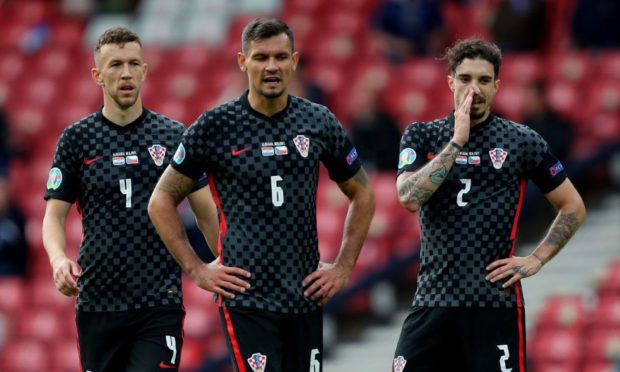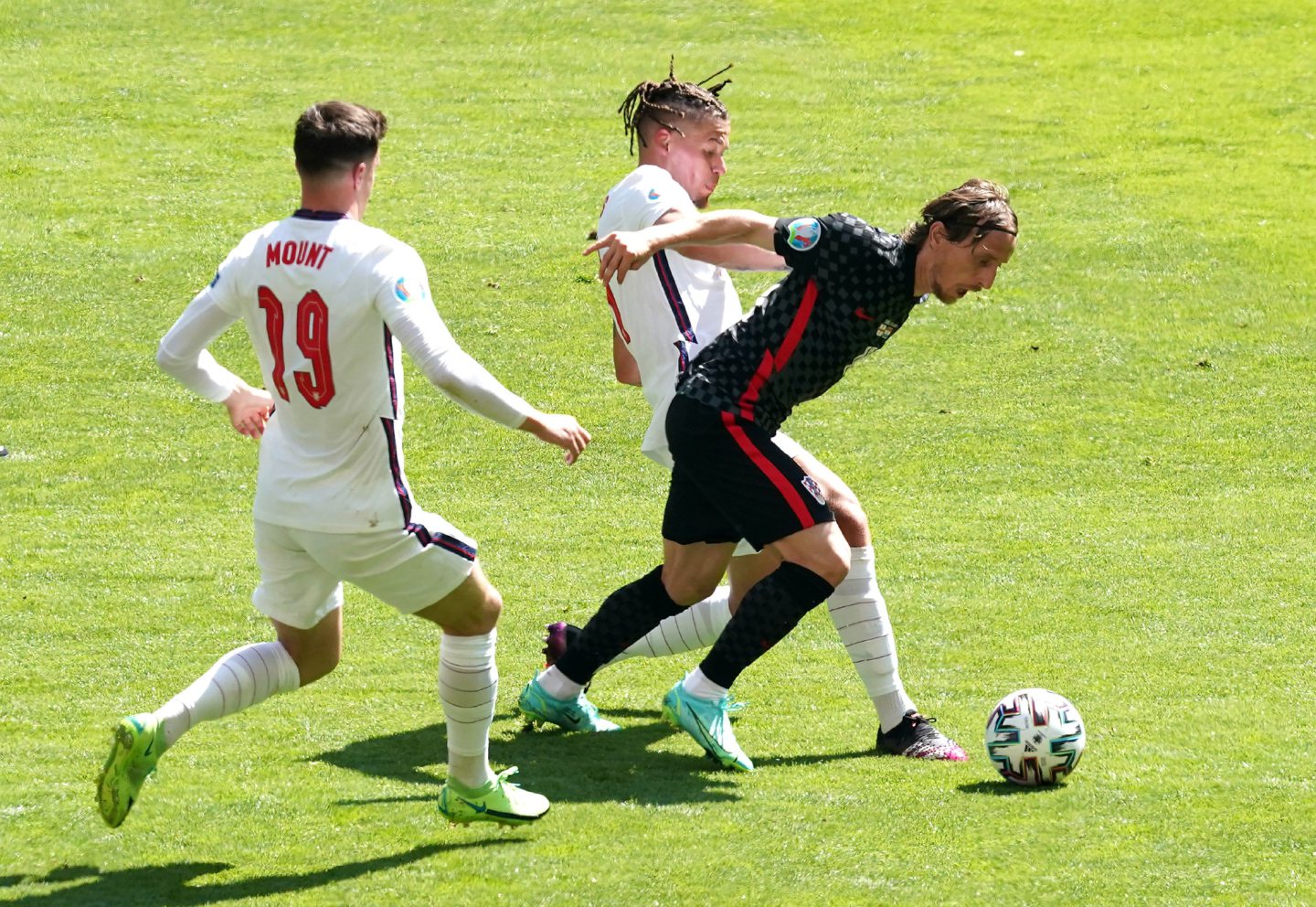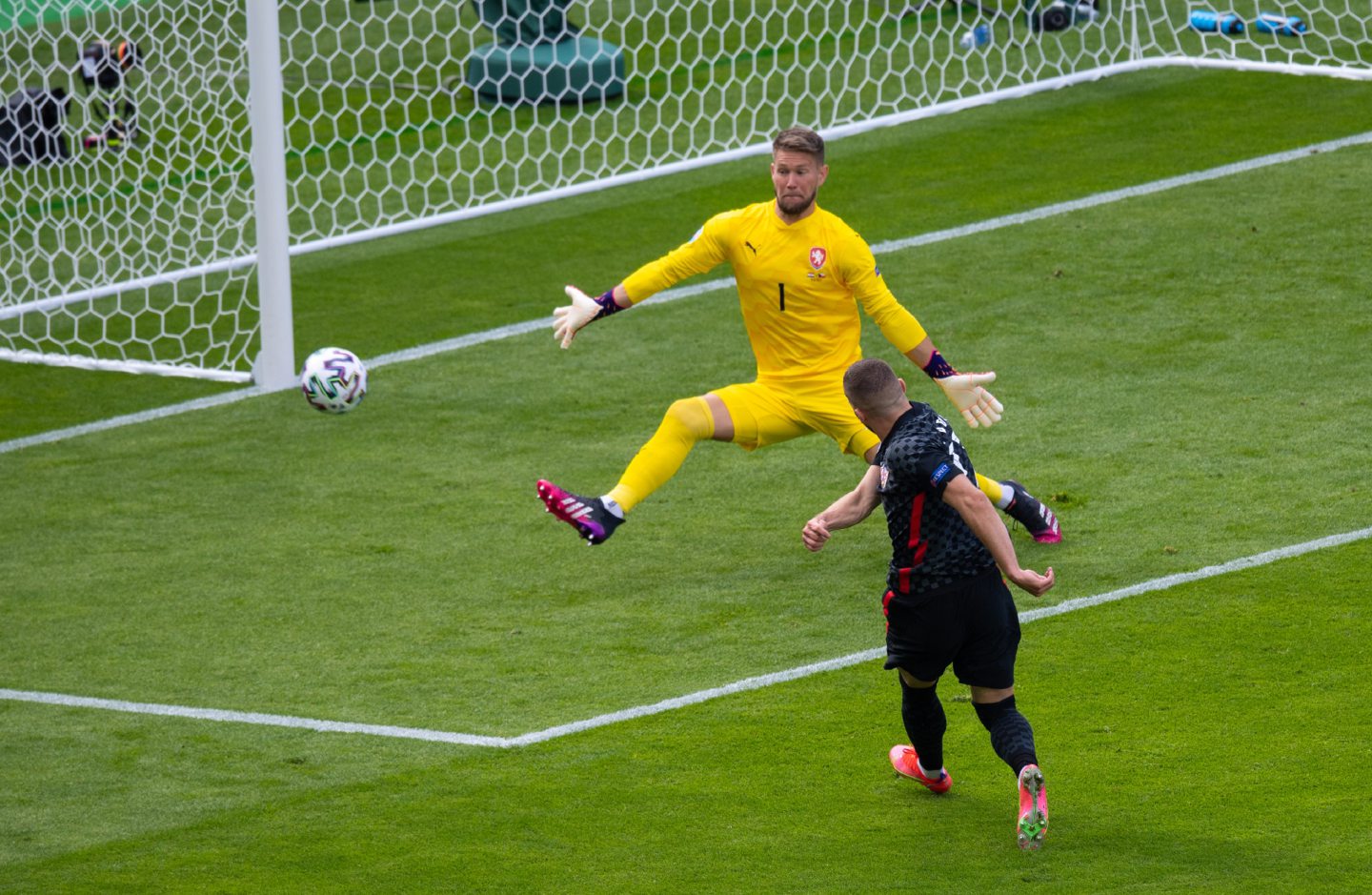Croatia have, so far, underwhelmed at Euro 2020.
Drawing 1-1 with the Czech Republic followed a 1-0 defeat to England, leaving Zlatko Dalic’s men tied with Scotland on one point at the foot of Group D.
Both Croatia and Scotland can qualify for the last 16 with a win as one of the top four third-placed teams.
For Steve Clarke’s men that would mean making history as the first Scotland side to make it out of the group stages at a major tournament.
And if match history means much in this context, then it favours Scotland. Croatia have never beaten the Dark Blues or won at Hampden in general.
Here, we take a look at three problems the Croatians face ahead of the decider against Scotland at the national stadium.
1. Inability to implement their passing game
Croatia were renowned for their short passing game and perhaps one of the reasons they have struggled in their opening two matches is that they have not managed to retain possession to any great degree.
Indeed, they have averaged 49% possession in the two games – well below their average of about 62% in qualifying.
Is it because the level of opposition in the tournament proper is better than qualifying? Maybe.
But, as Scotland witnessed at Wembley, England are no great shakes at controlling a game themselves.
Coupled with the Czechs’ hard-working pressing game, the suggestion has to be that Croatia’s own underperformance is the key here rather than their opponents playing so much better.
While Clarke has employed the long ball routinely in both matches so far, the Billy Gilmour-Callum McGregor axis in the centre of the park worked a treat in retaining the ball against England and it is unfortunate the Chelsea youngster won’t be able to further press his claim for a regular run after testing positive for coronavirus.
Nonetheless, another dynamic midfield display interrupting Croatia’s flow will go a long way to edging the game in Scotland’s favour.
2. Attacking confusion
Despite having good options up front, Croatia have yet to find the right mix to really put the tournament on notice.
Ivan Perisic has been their only goalscorer – with a typically rasping strike against Czech Republic – but beyond that they look a team ruing the international retirement of Mario Mandzukic.
Ante Rebic has started both matches while qualifying top scorer Bruno Petkovic warmed the bench. Rebic has managed to get just four shots away so far, hitting the target only once.
Scotland striker Lyndon Dykes, meanwhile, has been criticised for his profligacy but is at least consistently hitting the target – he has the same amount of shots but three of them have forced the goalkeeper (or in the case of Reece James, a defender) to thwart him.
Given Scotland’s defensive heroics against England – has Grant Hanley let Harry Kane out of his back pocket yet? – the signs are, dare we say it, quite good.
The fact Scotland have blocked more shots (17 to 4), cleared more balls (26 to 24) and intercepted more passes (17 to 14) than Croatia, having played against the same two teams, suggests defensively we will not be found lacking commitment when it comes to stopping the Croatian forwards finally hitting form.
3. A leaky defence
This is perhaps the problem which will encourage Scotland more than any other, given our struggles in front of goal.
In our pre-tournament analysis of Croatia, we pointed out their defence was prone to concession even when the team was winning.
They kept two clean sheets from eight qualifiers before precisely none in a disappointing Nations League campaign.
Dalic’s men have continued that in the Euros, looking shaky while once again failing to keep the back door shut.
In a potentially prophetic twist of fate, all four goals Scotland have scored at a European Championship so far have come in the final match of the group stage.
Clarke will be hoping both of those trends continue.
Where can I watch?
Clarke’s men take on Croatia at 8pm live on STV (in Scotland) and ITV4 (outwith Scotland). At the same time, England’s match against Czech Republic will be on ITV4 (in Scotland) and ITV (outwith Scotland).
Statistics referenced in this article are from Opta and the Uefa website


